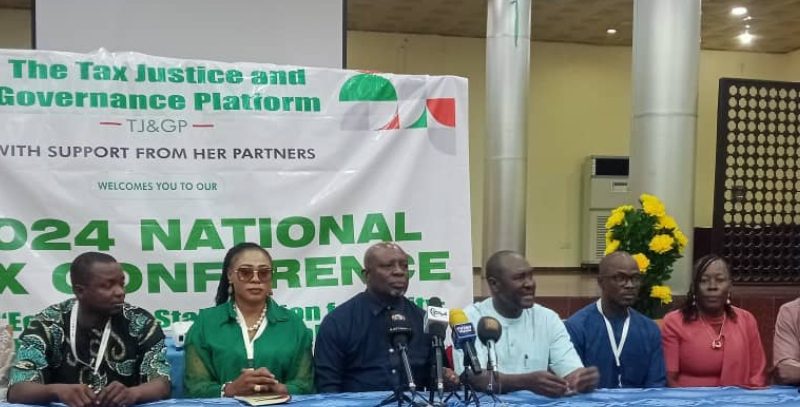EQUITY, FAIRNESS, AND REFORM: Highlights from the 2024 National Tax Conference
Maryam Aminu
The 2024 National Tax Conference, held at the Rockview Royale Hotel in Abuja, concluded with a resounding call for equitable and inclusive fiscal reforms to stabilize Nigeria’s economy. Themed “Economic Stabilization for Equity: Ensuring Fairness in Fiscal Reforms,” the event brought together 173 participants, including government officials, civil society leaders, labor unions, international organizations, and representatives from the informal economy.
Reading the communique, Auwal Ibrahim Musa Rafsanjani, Executive Director of the Civil Society Legislative Advocacy Centre (CISLAC), emphasized the need for greater transparency and accountability in fiscal reforms.
He noted that aligning tax policies with the realities of Nigerians is critical to building trust and ensuring public buy-in.
Rafsanjani stressed the importance of using tax revenue to address pressing infrastructure deficits, reduce economic inequality, and improve public service delivery.
He urged the government to make tax reforms participatory, ensuring that the voices of vulnerable groups, such as women, girls, and persons with disabilities, are incorporated into final policies.
Celestine Okwudili, Head of Programmes at ActionAid, reiterated the need for data-driven fiscal policies that prioritize equity and inclusivity.
Okwudili highlighted the disproportionate impact of economic reforms, such as VAT adjustments and subsidy removal, on low-income earners and marginalized groups.
He advocated for progressive taxation that ensures the wealthy and large corporations contribute their fair share while alleviating the tax burden on the most vulnerable.
Okwudili further called for collaborative efforts to educate the public on fiscal reforms and their implications, enhancing transparency and fostering trust.
The conference addressed concerns over the timing of VAT increases amid inflation rates exceeding 30%, urging the government to prioritize economic stabilization before introducing additional tax burdens.
Stakeholders also called for broader consultations on the classification of essential goods under VAT exemptions to ensure fairness and inclusivity.
Participants stressed the importance of harmonizing Nigeria’s tax administration system to eliminate multiple taxation, which disproportionately affects smallbusinesses and informal workers. They advocated for integrating digital solutions into tax administration to streamline processes and improve compliance.
Additionally, there were calls to develop measurable indicators for gender inclusivity, ensuring that fiscal reforms address the unique challenges faced by women and girls.
The communique also highlighted the urgent need to link tax revenues to visible improvements in public services, fostering public confidence in the system.
Stakeholders recommended the redistribution of additional revenues to support the most vulnerable populations, including women, children, and persons with disabilities, to cushion the impact of economic adjustments.
Representatives from the Federal Ministry of Finance, Federal Inland Revenue Service (FIRS), West Africa Tax Administration Forum (WATAF), and civil society organizations such as CISLAC, Oxfam Nigeria, and ActionAid, reaffirmed their commitment to fostering sustainable economic growth through equitable and transparent fiscal policies.
The conference concluded with a shared vision of building a tax system that promotes social equity, strengthens public trust, and fosters sustainable development in Nigeria.
Signed: Representatives of the Tax Justice and Governance Platform and Supporting Organizations.




